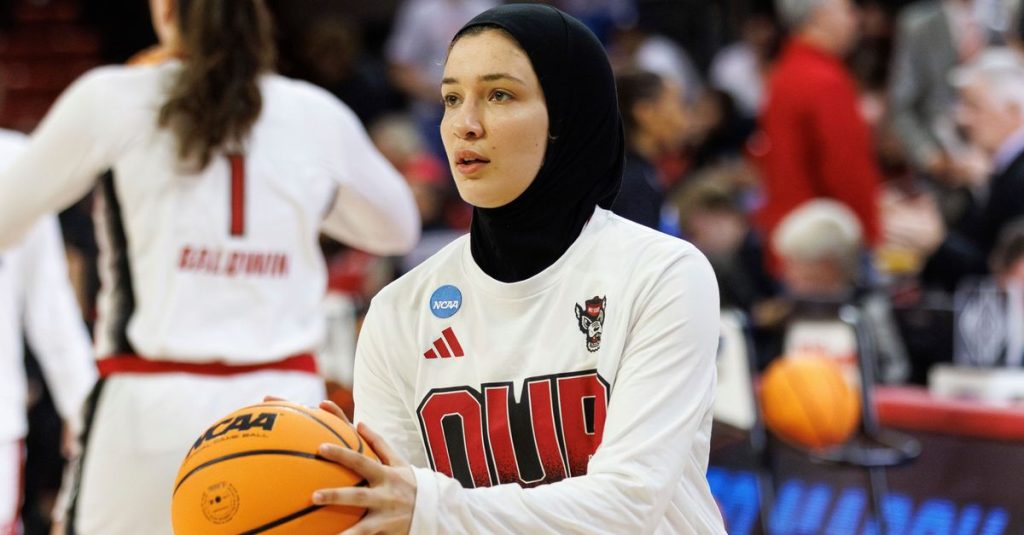N.C. State’s Jannah Eissa and UC Irvine’s Diaba Konate are making history as Muslim women who wear hijabs while playing basketball, garnering attention and admiration for breaking barriers in NCAA Tournament play. Konate cites the importance of representation for young Muslim women, noting the impact of seeing athletes like herself on the court. She looks up to Bilqis Abdul-Qaadir, who paved the way for hijabi athletes in college basketball and played a key role in getting FIBA to lift its ban on headgear in 2017. Former UConn player Batouly Camara founded the non-profit organization Women And Kids Empowerment (WAKE) and applauds Eissa and Konate for their inspirational presence on the court, showing girls worldwide that they belong in sports regardless of background.
Konate, who transferred to UC Irvine from Idaho State, expresses the desire to play in a hijab in her home country of France, where the basketball federation currently prohibits religious attire on the court. Despite this restriction, Konate remains hopeful that the policy will change in the future. Eissa, on the other hand, joined N.C. State as a walk-on and didn’t see much playing time this season, but her appearance in 11 games has already made a significant impact on young Muslim girls, who have come to support her at games. Eissa takes pride in being a role model for these fans, recognizing the positive influence she can have on their lives.
While Eissa and Konate have never met, they are aware of each other’s presence as fellow hijabi athletes in basketball. Eissa recalls a recent post about Konate and expresses her happiness at seeing another woman wearing a hijab in the sport. Both athletes represent a new wave of diversity and inclusion in NCAA basketball, challenging stereotypes and inspiring a generation of young athletes. Their resilience in the face of challenges and restrictions is a testament to their dedication to the sport and their commitment to breaking down barriers for future generations of athletes.
The visibility of Eissa and Konate in the NCAA Tournament serves as a powerful message of empowerment and inclusion, showing that women in hijabs belong on the sports field just as much as anyone else. Despite facing obstacles and restrictions based on their religious attire, these athletes continue to persevere and make an impact on and off the court. With record viewership and attendance, their presence is creating a positive narrative of representation and diversity in sports, encouraging young girls around the world to pursue their athletic dreams without compromising their identity.
As Eissa and Konate continue to defy expectations and challenge stereotypes, their journey as hijabi athletes in NCAA basketball serves as a beacon of hope and inspiration for women and girls everywhere. Their dedication to the sport and their commitment to breaking down barriers exemplify the power of representation and inclusion in sports. By sharing their stories and inspiring the next generation of athletes, Eissa and Konate are making a lasting impact on the world of basketball and beyond.


